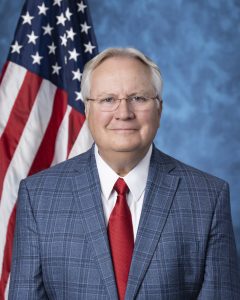
President Biden has said one of his top priorities is creating new jobs and “growing the economy for all Americans.” One way he seeks to do this is by increasing the federal minimum wage to $15 an hour between now and 2025. The unfortunate reality is such a move would result in significant increases in unemployment for younger and less educated workers who typically work entry-level minimum wage jobs, even though President Biden claims it would increase employment and increase wages for these workers.
The Congressional Budget Office (CBO) reports that raising the federal minimum wage to $15 an hour, despite lifting 900,000 people out of poverty, would cause 1.4 million people to lose their job due to layoffs, outsourcing, and automation. Simply put, implementing such a significant wage increase on many small businesses would force business owners to cut their workforce and increase prices for their goods and services. The CBO also found that raising the federal minimum wage would add another $54 billion to the federal deficit over the next 10 years.
By imposing the labor costs of urban areas like New York City or Los Angeles on rural areas and rural states with lower costs of living, a drastically increased federal minimum wage would drive countless small business in states like Alabama to significantly increase their prices or lay off employees. These layoffs would disproportionately affect younger and unskilled laborers, who depend on minimum wage jobs. According to the Bureau of Labor Statistics, the majority of minimum wage earners are between 16 and 24 years old. Minimum wage jobs often provide younger workers the opportunity to learn and develop key skills which enable them to move up the economic ladder and earn more money down the road.
While the immediate effects of increasing the minimum wage might temporarily improve the lives of entry-level earners, we must take into account the long-term repercussions of such a decision. If the federal government mandates a wage hike across the board, many young workers will lose out on the opportunity to work entry-level jobs and develop key skills they will need down the road to earn more money. Increasing the threshold of entry into the job market will have devastating impacts on the earning potential for younger workers. Instead of more government mandates, we should be focused on pro-growth policies that enable businesses to grow, while giving workers the opportunity to develop their skills and increase their earnings throughout the entirety of their career journey.
Jerry Carl represents Alabama’s First Congressional District. He lives in Mobile with his wife Tina.
